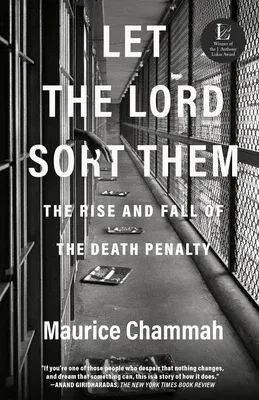NEW YORK TIMES EDITORS' CHOICE - A deeply reported, searingly honest
portrait of the death penalty in Texas--and what it tells us about crime
and punishment in America
"If you're one of those people who despair that nothing changes, and
dream that something can, this is a story of how it does."--Anand
Giridharadas, The New York Times Book Review
WINNER OF THE J. ANTHONY LUKAS AWARD
In 1972, the United States Supreme Court made a surprising ruling: the
country's death penalty system violated the Constitution. The backlash
was swift, especially in Texas, where executions were considered part of
the cultural fabric, and a dark history of lynching was masked by gauzy
visions of a tough-on-crime frontier. When executions resumed, Texas
quickly became the nationwide leader in carrying out the punishment.
Then, amid a larger wave of criminal justice reform, came the death
penalty's decline, a trend so durable that even in Texas the punishment
appears again close to extinction.
In Let the Lord Sort Them, Maurice Chammah charts the rise and fall of
capital punishment through the eyes of those it touched. We meet Elsa
Alcala, the orphaned daughter of a Mexican American family who found her
calling as a prosecutor in the nation's death penalty capital, before
becoming a judge on the state's highest court. We meet Danalynn Recer, a
lawyer who became obsessively devoted to unearthing the life stories of
men who committed terrible crimes, and fought for mercy in courtrooms
across the state. We meet death row prisoners--many of them once-famous
figures like Henry Lee Lucas, Gary Graham, and Karla Faye Tucker--along
with their families and the families of their victims. And we meet the
executioners, who struggle openly with what society has asked them to
do. In tracing these interconnected lives against the rise of mass
incarceration in Texas and the country as a whole, Chammah explores what
the persistence of the death penalty tells us about forgiveness and
retribution, fairness and justice, history and myth.
Written with intimacy and grace, Let the Lord Sort Them is the
definitive portrait of a particularly American institution.

